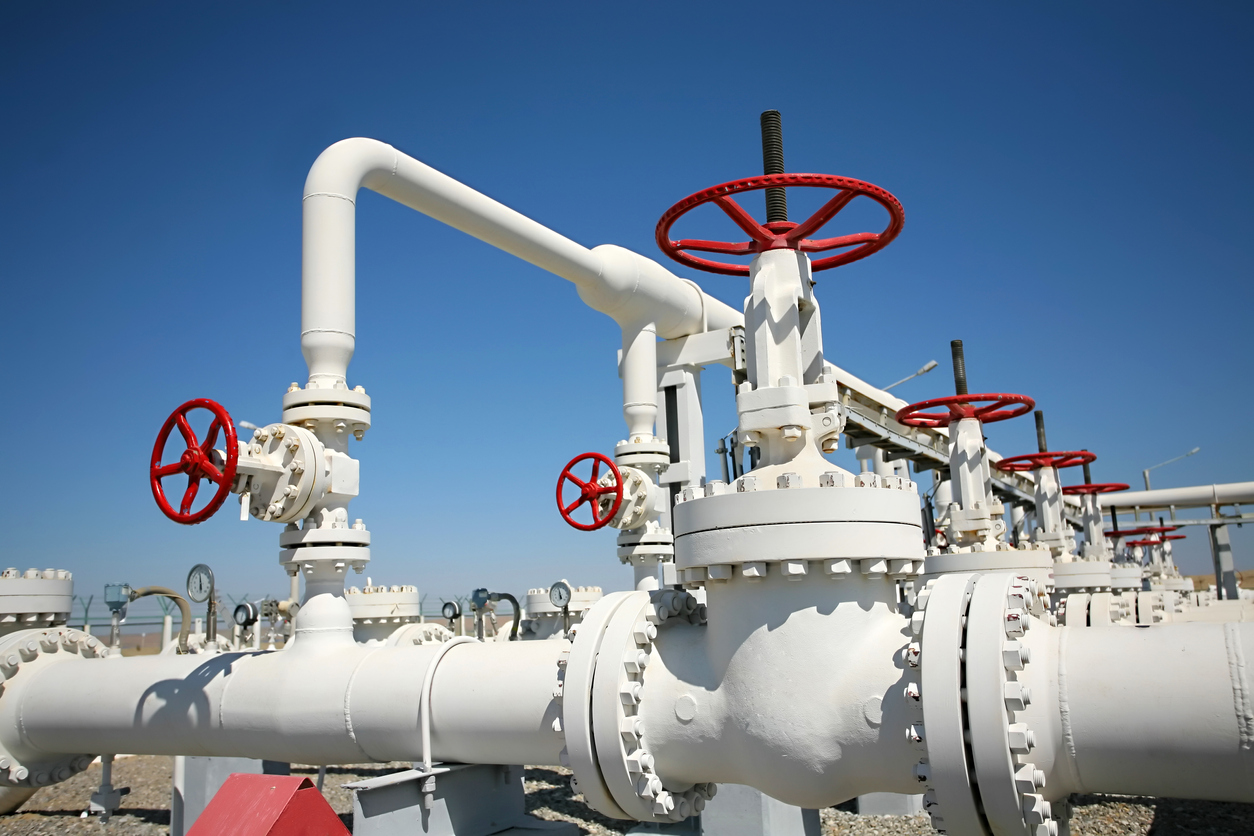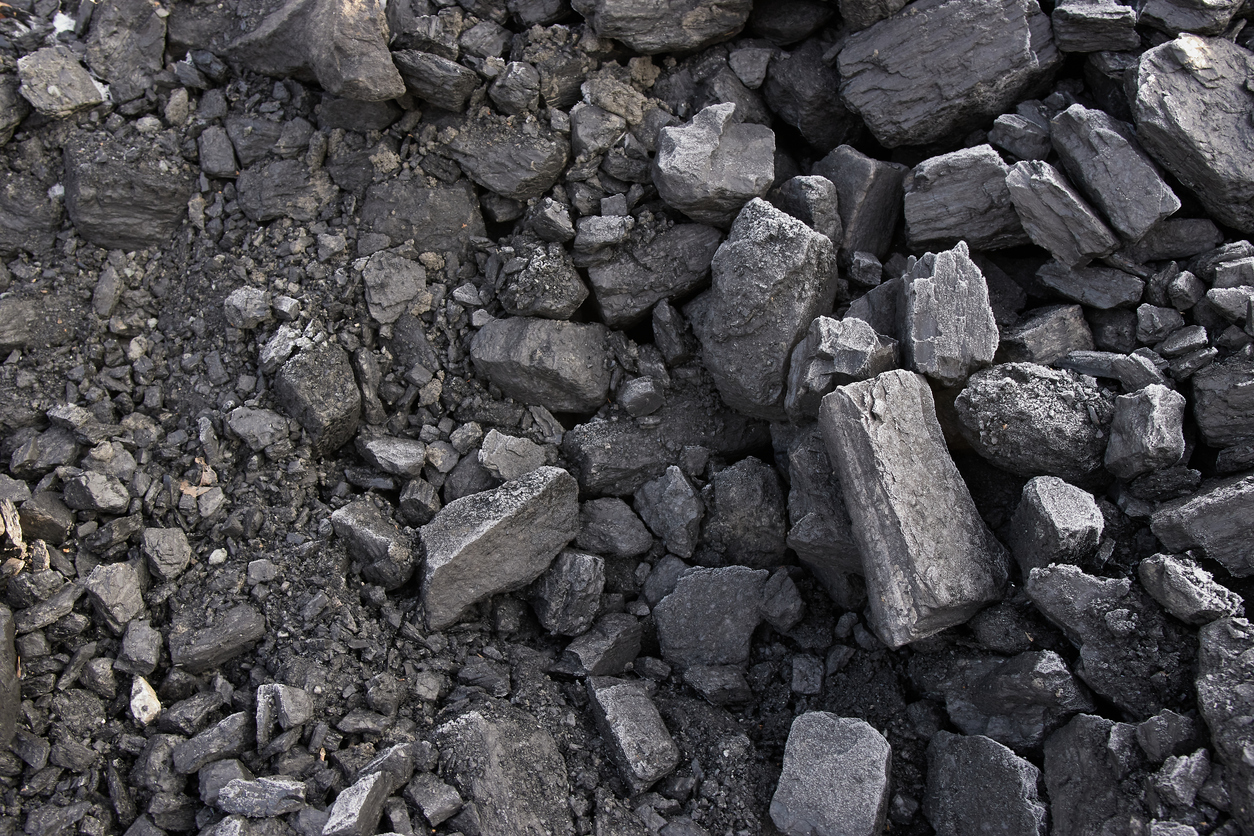Enhancing Gas Infrastructure Safety in Nigeria: A Closer Look at Leak Detection and Integrity Inspection
Enhancing Gas Infrastructure Safety in Nigeria: A Closer Look at Leak Detection and Integrity Inspection
Welcome to our blog post on enhancing gas infrastructure safety in Nigeria! In a world where energy plays an indispensable role, ensuring the integrity and security of gas pipelines is paramount. Today, we are taking a closer look at leak detection and integrity inspection methods that are revolutionizing the way we ensure the safety of these vital infrastructures. Join us as we dive into innovative technologies, best practices, and actionable solutions that will not only protect lives but also safeguard Nigeria’s booming gas industry. Get ready for an enlightening journey into the world of enhanced gas infrastructure safety!
Introduction to Gas Infrastructure in Nigeria
Introduction to Gas Infrastructure in Nigeria
Nigeria, located in West Africa, is the largest economy on the continent and one of the top producers of oil and natural gas. The country has been actively investing in its gas sector to meet the growing domestic demand for energy and diversify its economy. As a result, Nigeria has established an extensive network of gas infrastructure including pipelines, processing plants, storage facilities, and distribution systems.
Natural gas is a crucial source of energy for Nigeria, as it accounts for about 40% of the country’s total energy consumption. The majority of this natural gas is produced from offshore fields in the Niger Delta region and transported through pipelines to various parts of the country. The Nigerian Gas Master Plan aims to utilize more than half of the produced natural gas for domestic use by 2020.
The infrastructure built to transport and distribute natural gas plays a vital role in ensuring that this valuable resource reaches its intended destination safely and efficiently. However, like any other complex system, these facilities are susceptible to leaks or other integrity issues that can have severe consequences if left undetected or unaddressed.
With these challenges in mind, the Nigerian government has taken several initiatives to enhance safety measures within its gas infrastructure. One such initiative is implementing advanced leak detection systems and integrity inspections throughout the entire network.
In terms of leak detection systems, there are two main methods used in Nigeria – manual inspection and automated systems. Manual inspections involve sending trained personnel to physically inspect pipeline sections using specialized equipment such as sniffers or acoustic sensors. While this method can be effective at detecting leaks, it is time-consuming and labor-intensive.
On the other hand, automated leak detection systems use advanced technologies such as fiber optics or ultrasonic sensors to continuously monitor pipeline networks for any signs of leakage. These systems provide real-time data on potential leaks’ location and size while also reducing response times significantly compared to manual inspections.
Integrity inspections involve assessing the overall condition of pipelines and other gas infrastructure to identify any potential weaknesses or integrity threats. This can be done through various methods, such as in-line inspections using smart pigs, visual surveys, and aerial monitoring.
Nigeria’s gas infrastructure is vital for meeting the country’s energy needs and driving economic growth. To ensure its safe and efficient operation, continuous efforts are being made to enhance safety measures through advanced leak detection systems and integrity inspections. In the next section, we will take a closer look at these technologies and their role in maintaining the integrity of Nigeria’s gas infrastructure.
Importance of Safety in Gas Infrastructure
The importance of safety in gas infrastructure cannot be overstated. Gas pipelines and other related facilities are vital components of the energy supply chain, providing fuel for industries, transportation, and households. However, these infrastructures also pose potential risks to public health, property, and the environment if not adequately maintained and monitored.
One of the main reasons why safety is crucial in gas infrastructure is to prevent accidents such as leaks and explosions. Gas leaks can occur due to various reasons like corrosion, mechanical damage, or natural disasters. These incidents can result in fires or explosions that can cause significant damages to nearby communities.
Moreover, gas leaks also pose a threat to human health and the environment. Natural gas contains chemicals such as methane that can be harmful when inhaled or ingested by humans or animals. In addition, if a leak goes undetected for an extended period, it can lead to air pollution and contribute to climate change.
Ensuring safety in gas infrastructure also promotes economic stability. A single incident of a major pipeline explosion can disrupt the supply of natural gas and cause severe economic losses. This disruption not only affects industries but also impacts households that rely on natural gas for cooking and heating.
Furthermore, promoting safety in gas infrastructure builds public trust and confidence in the energy sector. Communities living near pipelines need assurance that they are safe from potential hazards caused by these infrastructures. By adhering strictly to safety standards and regulations, companies demonstrate their commitment to protecting the well-being of individuals living near their operations.
Aside from preventing accidents and promoting public trust, maintaining safety in gas infrastructure is essential for sustaining its reliability. Regular leak detection inspections ensure prompt identification of any issues before they escalate into significant problems that require costly repairs or replacements.
Additionally, proper maintenance practices increase the lifespan of pipelines while reducing operation costs associated with frequent repairs or replacements due to neglect or inadequate monitoring.
Ensuring safety in gas infrastructure is crucial for protecting lives, preserving the environment, and promoting economic stability. Companies must invest in advanced leak detection technologies and integrity inspection methods to maintain the reliability and safety of their gas infrastructures. By doing so, they not only meet regulatory requirements but also demonstrate their commitment to protecting the well-being of individuals and communities.
Types of Leaks and their Impact
Leakages in gas infrastructure can have severe consequences, ranging from financial losses to environmental hazards and even loss of human life. It is essential to identify different types of leaks and their impact on the gas infrastructure to ensure the safety and integrity of this critical system.
1. Internal Leaks:
Internal leaks occur within the pipeline or storage tanks due to corrosion, cracking, or other mechanical failures. These leaks can be challenging to detect as they are not visible from outside. They can lead to a decrease in pressure or volume of gas, causing disruptions in supply and potential safety hazards.
2. External Leaks:
External leaks happen when the pipeline or storage tanks are damaged by external factors such as excavation activities, natural disasters like earthquakes, or third-party interference. These leaks can result in significant safety risks if left undetected, leading to explosions or fires.
3. Slow Leaks:
Slow leaks occur over an extended period and may not be immediately noticeable due to their slow release of gas into the environment. However, these types of leaks can cause significant environmental damage if not identified and repaired promptly.
4. Sudden Leaks:
Sudden leaks happen without warning and can release a large amount of gas into the environment rapidly. These types of leaks often occur due to equipment failure or human error and require immediate action for containment and repair.
5. Liquid Gas Leaks:
Liquid gas leaks pose a unique challenge as they are denser than air and tend to pool at ground level rather than dissipating into the atmosphere quickly. This situation increases the risk of fire or explosion if ignited by any heat source.
6.LPG Cylinder Leaks:
Liquefied Petroleum Gas (LPG) cylinders used in households for cooking purposes also face leakage issues due to mishandling, rusting, or poor maintenance practices. These small but highly flammable cylinders require regular inspection for any signs of leakage to prevent accidents at homes.
The impact of these leaks on gas infrastructure can be catastrophic. They can result in financial losses, disrupt the supply of gas to industries and households, cause environmental pollution, and endanger human lives. Therefore, it is crucial to have a robust leak detection system in place for timely identification and repair of any leaks.
Understanding the different types of leaks and their potential impact on gas infrastructure is vital for ensuring its safety and integrity. Regular inspection, maintenance, and prompt repair of any identified leaks are essential measures that must be taken to prevent accidents and maintain a reliable gas supply system in Nigeria.
Traditional Methods of Leak Detection
Traditional Methods of Leak Detection:
In the past, leak detection in gas infrastructure relied heavily on manual inspections and visual observations. This involved physical surveys of pipeline routes and checking for any visible signs of leaks such as bubbling or discoloration of the soil.
Another traditional method was the use of odorants, which are added to natural gas to give it a distinctive smell that can be detected in case of a leak. However, this method has its limitations as the strength of the odorant can vary and become diluted over time, making it less reliable for detecting smaller leaks.
Pressurization testing is another widely used traditional method for leak detection. In this process, sections of pipelines are isolated and pressurized with air or water while monitoring for any changes in pressure that could indicate a leak. However, this method is time-consuming and requires shutting down parts of the infrastructure, resulting in significant downtime and loss of revenue.
Acoustic methods have also been utilized for detecting leaks by listening for abnormal sounds along pipeline routes. This technique works by using sensors to detect unusual noises caused by escaping gas under high pressure. Although effective at detecting large leaks, these methods can be unreliable when it comes to identifying smaller leaks or distinguishing between actual leaks and background noise.
Moreover, aerial surveys using infrared cameras have been employed as a means to detect potential gas emissions from above ground installations such as compressor stations or processing plants. This technique relies on identifying temperature variations that may indicate potential leaks, but it is not always accurate due to external factors like weather conditions or thermal insulation.
While these traditional methods have been useful in detecting gas leaks in the past, they are not foolproof and are often limited when it comes to identifying smaller or underground leaks. They also require significant manpower and resources which adds up to operational costs for companies.
As technology continues to advance rapidly, newer methods incorporating modern technologies such as remote sensing devices and advanced data analytics have emerged as more efficient and reliable alternatives for leak detection in gas infrastructure. These methods will be discussed in detail in the next section, highlighting their capabilities and benefits for enhancing safety and integrity in the Nigerian gas industry.
Advancements in Leak Detection Technology
Advancements in Leak Detection Technology
The safety of gas infrastructure is of utmost importance in ensuring the well-being of individuals and the protection of the environment. With leak detection being a crucial aspect in maintaining the integrity of gas pipelines, advancements in technology have greatly improved our ability to detect leaks and prevent potential disasters.
One major advancement in leak detection technology is the use of advanced sensors and monitoring systems. These sensors can be installed along pipelines to continuously monitor pressure, flow rate, temperature, and other parameters that could indicate a potential leak. They also have the capability to detect changes in these parameters and immediately send alerts to operators for prompt action.
In addition, with the rise of Internet-of-Things (IoT) devices, real-time data from these sensors can be transmitted to a central control system for analysis. This allows for more accurate and timely detection of leaks, as well as providing valuable insights into pipeline conditions.
Another innovative technology used for leak detection is acoustic emission testing. This method involves placing sensitive microphones on or near pipelines to detect any abnormal sounds that may indicate a leak. The sensitivity of these microphones has significantly improved over time, making it possible to detect even small leaks before they escalate into bigger issues.
Furthermore, advancements in satellite imaging have opened up new possibilities for remote monitoring and early detection of potential leaks. Satellite-based technologies can capture high-resolution images that are able to identify changes on the surface above underground pipelines. Any disturbances or anomalies detected by these images can then be investigated further for potential leaks.
Moreover, big data analytics has revolutionized how we approach leak detection. With vast amounts of data collected from various sources such as sensors, satellite imagery, weather patterns, etc., sophisticated algorithms can now analyze this data in real-time to accurately predict possible leaks before they occur.
These advancements not only improve our ability to detect leaks but also contribute towards reducing false alarms and increasing efficiency in pipeline operations. With better accuracy and faster response times, operators can take immediate action to address leaks, preventing potential disasters and ensuring the safety of nearby communities.
Advancements in leak detection technology have greatly enhanced our ability to maintain the safety and integrity of gas infrastructure. With continuous research and development in this field, we can expect further improvements in leak detection methods, ultimately leading to a safer and more reliable gas supply for all.
Role of Wigmore Trading in Enhancing Gas Infrastructure Safety
Role of Wigmore Trading in Enhancing Gas Infrastructure Safety:
Wigmore Trading is a leading company in Nigeria that specializes in providing cutting-edge solutions for gas infrastructure safety. With years of experience and a team of highly skilled professionals, Wigmore Trading has played a crucial role in enhancing the safety standards of gas infrastructure in the country.
One of the key areas where Wigmore Trading has made significant contributions is in leak detection. The company offers advanced leak detection systems that use state-of-the-art technology to identify even the smallest leaks in gas pipelines. This is essential as it helps prevent potential disasters and ensures the overall safety of gas infrastructure.
In addition to leak detection, Wigmore Trading also provides integrity inspection services for gas pipelines. This involves conducting thorough inspections using various techniques such as ultrasonic testing, magnetic particle inspection, and visual inspection. By regularly inspecting gas pipelines, any potential issues or weaknesses can be identified and addressed before they turn into major problems.
Moreover, Wigmore Trading also offers training programs for personnel involved in handling and maintaining gas infrastructure. These training programs cover topics such as safety procedures, emergency response protocols, and proper handling techniques for equipment used in gas infrastructure maintenance. By educating individuals on best practices, Wigmore Trading plays a vital role in ensuring that all aspects related to the safety of gas infrastructure are taken care of effectively.
Another significant contribution by Wigmore Trading towards enhancing gas infrastructure safety is its partnership with renowned international companies specializing in this field. Through these partnerships, Wigmore Trading has access to state-of-the-art equipment and expertise from around the world. This enables them to provide top-notch solutions tailored specifically to meet Nigeria’s unique needs and challenges.
Furthermore, Wigmore Trading constantly keeps up with advancements in technology related to gas infrastructure safety. By staying updated on industry trends and innovations globally, they are able to offer their clients modern solutions that are efficient and effective at preventing accidents or incidents.
The role of Wigmore Trading in enhancing gas infrastructure safety in Nigeria cannot be overstated. With their expertise, advanced technology, and commitment to staying updated on industry standards, they have made significant contributions towards ensuring a safe and secure gas infrastructure network in the country. By continuing to provide top-notch services and solutions, Wigmore Trading is playing an integral part in promoting the growth and development of the Nigerian gas sector.
Benefits of Using Advanced Leak Detection Systems
Leak detection systems are crucial in ensuring the safety and integrity of gas infrastructure. With advancements in technology, newer and more sophisticated leak detection systems have been developed to enhance the effectiveness of gas pipeline monitoring. In this section, we will delve deeper into the benefits of using advanced leak detection systems in Nigeria’s gas infrastructure.
1. Early Detection and Prevention of Leaks
One of the primary benefits of using advanced leak detection systems is their ability to detect leaks at an early stage. These systems use highly sensitive sensors that can identify even the smallest leaks in the pipelines. This allows for prompt action to be taken before a small leak turns into a major disaster. By detecting leaks early on, these systems help prevent potential accidents, damages, and loss of life.
2. Cost Savings
Gas leaks can result in significant financial losses due to product wastage, repairs, and downtime for maintenance activities. Advanced leak detection systems offer cost savings by minimizing these losses through early detection and swift response measures. Timely identification of leaks also reduces repair costs as any damage or hazard can be dealt with before it escalates.
3. Remote Monitoring
Advanced leak detection systems are equipped with remote monitoring capabilities, allowing operators to monitor pipelines from a central location without physically inspecting them regularly. This not only saves time but also reduces the risk involved for workers who would otherwise have to conduct manual inspections along long stretches of pipeline.
4. Enhanced Accuracy
Traditional methods of leak detection often rely on visual inspection or human interpretation which may be prone to errors or oversights. Advanced leak detection systems utilize highly accurate sensors and data analysis algorithms that provide precise information about the location and severity of any leaks detected.
5. Real-time Alerts
Another benefit offered by advanced leak detection systems is real-time alerts for any abnormalities or potential hazards detected within the pipeline system. Operators receive alerts immediately upon detection, enabling them to initiate prompt response actions, thereby minimizing risks associated with gas leaks.
6. Reduced Environmental Impact
Gas leaks not only pose a safety risk but also have a significant impact on the environment. Advanced leak detection systems help mitigate this by detecting and addressing leaks quickly, preventing harmful gases from being released into the atmosphere.
Advanced leak detection systems offer numerous benefits for enhancing the safety and integrity of gas infrastructure in Nigeria. Their ability to detect leaks early, reduce costs, provide remote monitoring, enhance accuracy and offer real-time alerts make them an essential tool for ensuring the safe transportation of gas in pipelines.
Case Studies: Successful Implementation of Leak Detection and Integrity Inspection by Wigmore Trading
Case Studies: Successful Implementation of Leak Detection and Integrity Inspection by Wigmore Trading
Wigmore Trading, a leading supplier of gas infrastructure solutions in Nigeria, has successfully implemented leak detection and integrity inspection systems for various clients across the country. The company has a proven track record of providing reliable and efficient solutions that enhance the safety of gas infrastructure.
One notable case study is their collaboration with a major gas distribution company in Lagos. The client had been experiencing frequent leaks in their pipeline network, which posed a significant risk to both their employees and the surrounding communities. Wigmore Trading was brought on board to implement leak detection systems to address this issue.
After conducting a thorough assessment of the client’s pipeline network, Wigmore Trading recommended the installation of an advanced acoustic leak detection system. This system uses sensors along the pipeline to detect any changes in sound frequency, indicating the presence of a leak.
The implementation process involved installing over 200 sensors at strategic locations along the client’s pipeline network. These sensors were connected to a central control room where trained technicians monitored them 24/7. In case of any abnormal sound frequencies detected, an alarm would be triggered, alerting the technicians who could then dispatch teams to locate and fix the leak immediately.
As a result of this implementation, there was a significant reduction in the number of leaks experienced by the client. This not only enhanced safety but also resulted in cost savings from avoiding emergency repairs and loss of product through leaks.
Another successful case study involves Wigmore Trading’s partnership with an oil and gas company operating offshore near Port Harcourt. The client had been facing challenges with maintaining integrity in their underwater pipelines due to corrosive seawater conditions.
In response to this challenge, Wigmore Trading proposed implementing an advanced inline inspection tool known as “smart pigs.” These are intelligent devices that can travel through pipelines collecting data on its condition such as wall thickness and potential corrosion areas.
Wigmore Trading worked closely with the client to conduct a thorough pipeline survey to identify areas of concern and schedule the smart pig inspections accordingly. The data collected by the smart pigs was analyzed, and any potential integrity issues were flagged for immediate repair.
This implementation resulted in improved safety of the underwater pipelines and also provided valuable data for future maintenance planning. The successful collaboration between Wigmore Trading and their client showcases the importance of regular integrity inspections in ensuring safe operations in gas infrastructure.
These case studies highlight Wigmore Trading’s expertise in implementing leak detection and integrity inspection systems that have significantly enhanced gas infrastructure safety in Nigeria. With their advanced technology and experienced team, they continue to be at the forefront of providing innovative solutions for safe and reliable gas operations.
Future Outlook for Gas Infrastructure Safety in Nigeria
The future outlook for gas infrastructure safety in Nigeria is promising, as the government and industry stakeholders have recognized the need to enhance safety measures in the country’s gas sector. With a growing population and increasing demand for energy, the importance of ensuring safe and reliable gas infrastructure cannot be overstated.
One of the key developments in enhancing gas infrastructure safety in Nigeria is the implementation of advanced leak detection technology. The use of state-of-the-art sensors and monitoring systems has significantly improved leak detection capabilities, enabling early identification and prompt response to potential leaks. This has not only reduced the risk of accidents but also minimized the loss of valuable resources.
Furthermore, there has been a shift towards regular integrity inspections and maintenance activities on existing gas infrastructure. This proactive approach involves conducting thorough assessments of pipelines, storage facilities, and other critical components to identify any potential weaknesses or vulnerabilities that may compromise safety. By addressing these issues promptly, operators can prevent major incidents from occurring and ensure long-term reliability of their assets.
In addition to technological advancements, there have been significant efforts towards improving regulatory oversight in Nigeria’s gas sector. The Department of Petroleum Resources (DPR) has been actively enforcing compliance with safety standards and regulations while working closely with operators to develop effective emergency response plans. This coordinated effort between regulators and industry players is crucial in ensuring that all aspects of gas infrastructure are subject to strict safety protocols.
Moreover, investments are being made towards modernizing existing gas infrastructure networks across Nigeria by incorporating new technologies such as remote monitoring systems, pipeline automation software, and real-time data analysis tools. These upgrades will not only improve operational efficiency but also enhance overall safety by providing operators with timely information about any potential risks or threats.
There is an increased focus on public awareness campaigns aimed at educating communities living near gas infrastructure about potential hazards and appropriate precautions they should take. This includes conducting trainings on how to identify signs of leaks or damages to pipelines as well as establishing communication channels for reporting any concerns to the relevant authorities.
The future outlook for gas infrastructure safety in Nigeria is promising, with a combination of technological advancements, regulatory efforts, and public awareness campaigns working towards achieving safer and more reliable gas infrastructure. With continued commitment from all stakeholders, Nigeria can ensure that its growing energy needs are met while minimizing risks to human life and the environment.
Conclusion
In conclusion, ensuring the safety and integrity of gas infrastructure in Nigeria is crucial for protecting both the environment and the lives of its citizens. By implementing effective leak detection and integrity inspection methods, we can prevent potential disasters and foster a more sustainable future for our country. It is important that government bodies, industry leaders, and other stakeholders work together to prioritize these measures and invest in improving our gas infrastructure. Let us take a closer look at these issues and make positive changes to enhance the safety of gas infrastructure in Nigeria.








Comments are closed.